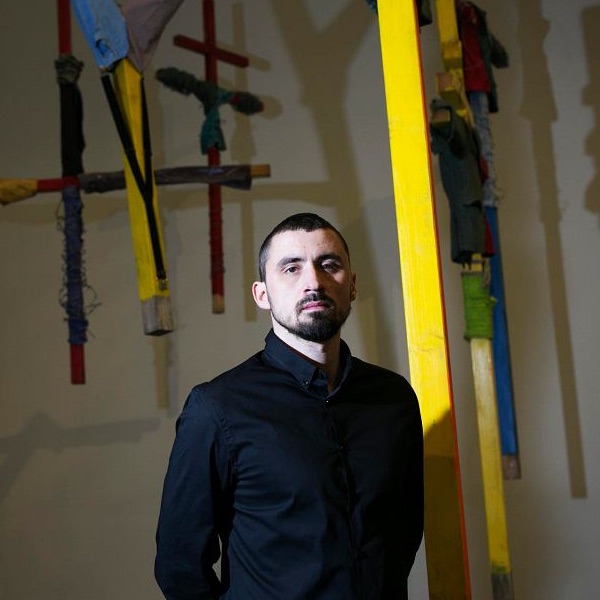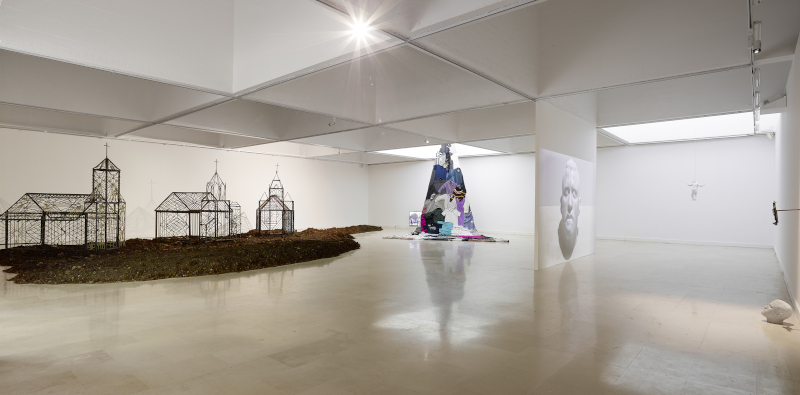Daniel Rycharski
1986 (Kurowko (Pologne))
Living in : Kurowko (Pologne)
Working in : Kurowko (Pologne)
A graduate of the Krakow School of Fine Arts, Daniel Rycharski lives and works in Kurowko, his native village located in the Mazovia province in northwestern Poland.
Rurality, its history and traditions, are very present in the artist's work. He associates peasants, farm workers as well as other inhabitants of his region to the productions he makes on site.
To date, the work most representative of his attachment to peasant culture is Monument to Peasant (2015), a direct reference to the Monument to the Defeated Peasants project that Dürer designed in 1525 to pay tribute to the more than 100,000 peasants who disappeared during peasant revolts in the Holy Roman Empire. If the architecture of the monument is no longer the same, we find in Rycharski's sculpture the character who sits at the top of the building, his back bowed by suffering. It is Adam Pesta, the mayor of his village, himself a farmer.
But beyond this platform that the artist offers to rurality, what makes Rycharski's work unique is that he fully assumes his gay identity and LGBTQ culture within the very community of his childhood.
Portrait:
© Agencja Gazeta
Living in : Kurowko (Pologne)
Working in : Kurowko (Pologne)
A graduate of the Krakow School of Fine Arts, Daniel Rycharski lives and works in Kurowko, his native village located in the Mazovia province in northwestern Poland.
Rurality, its history and traditions, are very present in the artist's work. He associates peasants, farm workers as well as other inhabitants of his region to the productions he makes on site.
To date, the work most representative of his attachment to peasant culture is Monument to Peasant (2015), a direct reference to the Monument to the Defeated Peasants project that Dürer designed in 1525 to pay tribute to the more than 100,000 peasants who disappeared during peasant revolts in the Holy Roman Empire. If the architecture of the monument is no longer the same, we find in Rycharski's sculpture the character who sits at the top of the building, his back bowed by suffering. It is Adam Pesta, the mayor of his village, himself a farmer.
But beyond this platform that the artist offers to rurality, what makes Rycharski's work unique is that he fully assumes his gay identity and LGBTQ culture within the very community of his childhood.
Portrait:
© Agencja Gazeta

